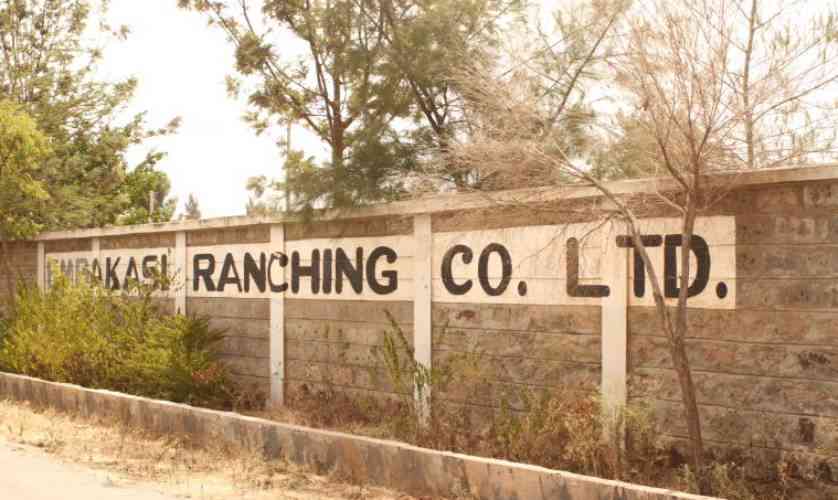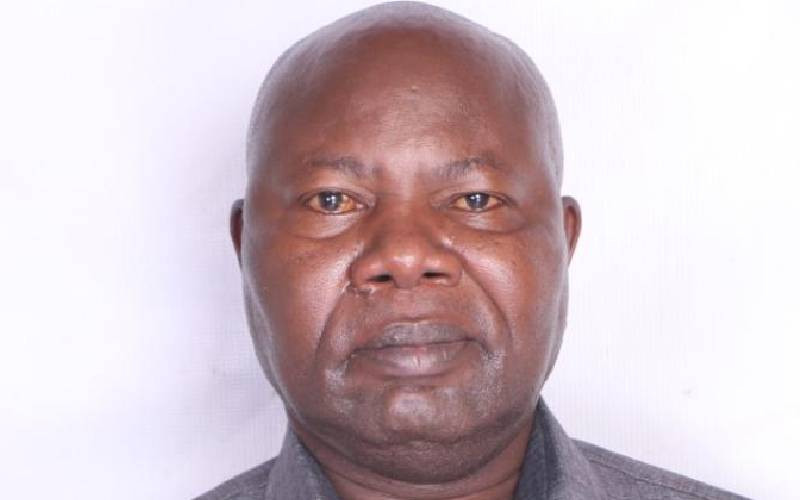
NAIROBI, KENYA: Senior security and administration officers, among them sub-county commissioners, OCPDs and AP commanders are under probe over alleged corruption in the just-concluded police recruitment.
They will be investigated and could be prosecuted if a multi-agency working group confirms graft allegations at the recruitment centres across the country.
Evidence forwarded to the Ethics and Anti-Corruption Commission (EACC) and National Police Service Commission (NPSC) indicate the exercise was grossly compromised by extortion, bribery, nepotism, discrimination and outright violation of force procedures of recruitment.
As the recruiting officers, commissioners, OCPDs and AP commanders will be held accountable for any crime and could face prosecution.
Interior Cabinet Secretary Joseph ole Lenku told The Standard on Sunday that investigations were underway. “I’m aware there are investigations going on and so let us wait for the report on the way forward,” said Mr Lenku.
The NPSC had delegated the recruitment of the 10,000 new officers to the commanders, who have since forwarded their reports for analysis.
Sources, however, said it is the commissioners, OCPDs and AP commanders to blame since they may have given room for corruption.
Investigation team
The investigating team drawn from EACC, NPSC, National Intelligence Service and CID has until August 4 to analyse the evidence and present its findings.
EACC chairman Mumo Matemu and secretary Halakhe Waqo met with NPSC this week and agreed to constitute a team to be chaired by commissioner Mohamed Murshid. “They will collect, collate and analyse all complaints and make recommendations to the commission for further action,” said NPSC chairman Johnston Kavuludi.
Mr Matemu said they could not call for nullification of the exercise until they get concrete evidence on allegations of corruption. He added there were some places where bribery did not take place.
He, however, said preliminary investigation indicate most prominent malpractices include extortion, bribery and nepotism.
Mr Kavuludi said preliminary findings showed there was bribery but was quick to distance his commission from the process.
Recruitment for the 10,000 constables was allocated Sh86 million and was conducted at all 288 constituencies or districts by OCPDs, AP commanders and sub-county commissioners. “We had delegated the mandate to conduct the exercise to the local commanders. We have received their reports, which we are analysing,” said Kavuludi.
Stay informed. Subscribe to our newsletter
He said they had so far received more than 400 letters and most of them are compliments.
The public had until Thursday to lodge their complaints with the commission. “In centres where it is ascertained the exercise was not above board, recruitment will be annulled and will lead to a repeat,” said Kavuludi.
Matemu said they have until September 5 to conclude and take action, just around the same time the recruits are expected to report for training in Kiganjo and Embakasi.
Parliament has called for postponement of the reporting date to allow completion of investigation.
Matemu and Kavuludi called for calm from the public and unsuccessful candidates as they audit the process.
There have been protests, complaints and accusations that the July 14 recruitment exercise was fraught with irregularities.
The commission had reduced the minimum entry grade to a D+ (Plus) from the previous C (Plain) and put the minimum age at between 18 and 28 years for KCSE holders, and a maximum of 30 years for those with specialised skills, including Diploma and Degree.
Hostels at the police training colleges are being expanded to accommodate the new candidates after the Treasury allocated Sh2.9 billion for the recruitment of 10,000 officers.
The police to population ratio in Kenya stands at 1:800, against the 1:400 recommended by the United Nations for efficient and effective policing. The Justice Ransley-led commission that produced a blueprint on police reforms imposed a freeze on recruitment until the training curriculum was reviewed, which authorities have done.
The new curriculum for training indicates constables will be trained for nine months, plus a six-month compulsory internship.
The recruits will be trained in management, research methodology, judicial procedure, information security management, psychology, cyber-crime, customer care, human rights and security, and safety.
 The Standard Group Plc is a
multi-media organization with investments in media platforms spanning newspaper
print operations, television, radio broadcasting, digital and online services. The
Standard Group is recognized as a leading multi-media house in Kenya with a key
influence in matters of national and international interest.
The Standard Group Plc is a
multi-media organization with investments in media platforms spanning newspaper
print operations, television, radio broadcasting, digital and online services. The
Standard Group is recognized as a leading multi-media house in Kenya with a key
influence in matters of national and international interest.
 The Standard Group Plc is a
multi-media organization with investments in media platforms spanning newspaper
print operations, television, radio broadcasting, digital and online services. The
Standard Group is recognized as a leading multi-media house in Kenya with a key
influence in matters of national and international interest.
The Standard Group Plc is a
multi-media organization with investments in media platforms spanning newspaper
print operations, television, radio broadcasting, digital and online services. The
Standard Group is recognized as a leading multi-media house in Kenya with a key
influence in matters of national and international interest.








